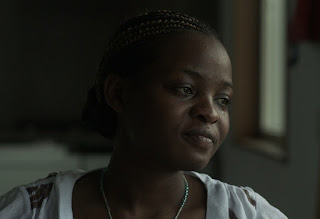Around this time last year I was waking
up to the news that someone had committed a
rampage killing in a cinema in Colorado, USA and had killed 12 people. Like most people, I was stunned by the
cruelty and nihilism of the heinous act.
However, unlike most people (it seemed) I was equally worried about the
ease in which the reporters were relaying the information on the news: It seemed like they were following a ‘script’
that was to be used in times of tragedies.
By the time the Sandy Hook tragedy happened other
commentators were talking of the same phenomenon of media coverage – especially
the horror author Stephen King. In response to these incidents I wrote my MA
dissertation about mass shootings and media coverage.
When I heard about a film about the Utoya
massacre called Wrong Time
Wrong Place I was initially worried that it would be a sensationalist
recreation of the events that tried to get ‘inside the mind of the killer’ or
‘recreate the final moments of the victims’.
Fortunately it is a very different film about luck, coincidence and
fate, relying entirely on the stories of those that were connected to the
terrible day. If you are unaware of the
events that occurred in Norway then you need to find them out from somewhere
else, as the film does not explain them to you – presumably to avoid the risk
of undermining anyone’s version of the events.
Instead the film interviews a handful of
people that were connected to the day:
Harald, an officer worker who was partially blinded but survived the
bombing; Ritah, a pregnant Ugandan refugee that managed to hide inside the camp
along with Håkon and Hajin, two Norwegians; Leila and Avtandil, parents of a
Georgian exchange student who was the last to be killed on the island and
finally Halvor, a base jumper who took the day off of work to jump off of a
cliff and survived the bombings. All of
these people tell their stories and consider whether it was luck, coincidence
of fate that meant that they were involved.
The film is incredibly moving and the
subject is presented with sympathy and sensitivity to the storytellers. The film is the exact opposite of the
broadcast media coverage in that it only shows the killer for a brief moment
and only to show Avtandil’s reaction in the courtroom. It does not try to hypothesise a motive for,
or diagnosis of, the events and instead deals with the personal reactions to
such a public incident.
Wrong Time Wrong Place is playing
at the OPEN CITY DOCS FESTIVAL
Friday
21st June 16:00
For
Tickets for Wrong Time Wrong Place go to http://wrongtime.eventbrite.co.uk/
For all other tickets to the festival go here
For all other tickets to the festival go here


No comments:
Post a Comment